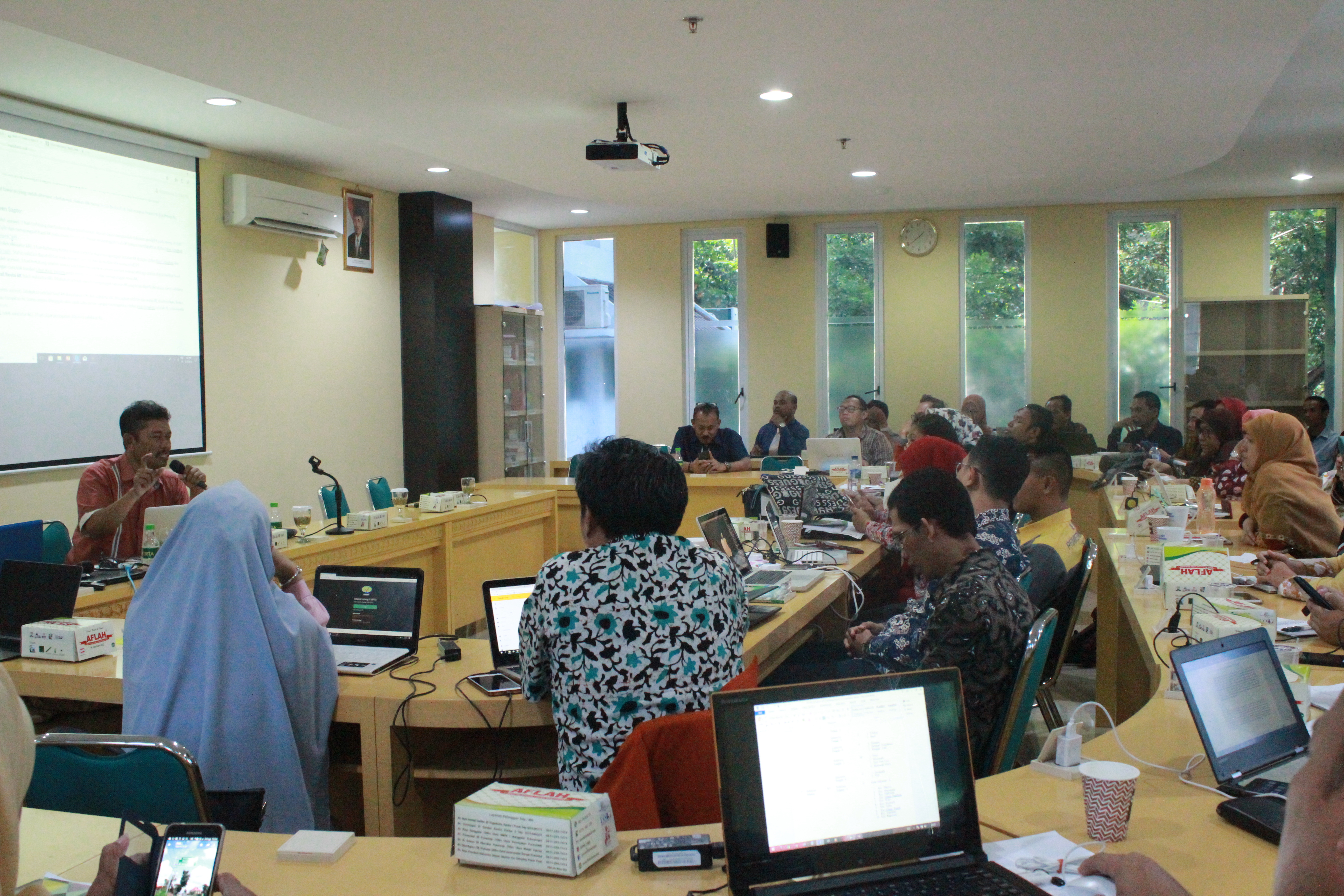Discuss Rencana Pembelajaran Semester (RPS) by Presenting Kesatuan Program Studi Ilmu Pemerintahan Indonesia (KAPSIPI)
 Bantul, Friday, April 20, 2018, Governmental Science, Master of Government Affairs and Administration UMY, and Kesatuan Program Studi Ilmu Pemerintahan Indonesia (KAPSIPI) held a workshop with the agenda of Compilation of Learning Achievement and RPS National Compulsory Subject. The event was held on 19-21 April 2018. At this event was attended by 61 participants who are lecturers from Government Studies Program of Indonesia. The event that begins with the opening and directed by the chairman KAPSIPI namely Prof. Dr. H. Debt Suwarno, Drs, MA. Followed by Vice Rector for International Cooperation and Prof. Dr. Achamd Nurmandi, M.sc. The next event is filled by prof. Dr. David Almarez who is a visiting professor from Mindanao State University – Iligan Institute of Technology, Philippines who discussed the Philippines Experience in Achieving Expected Learning Outcomes.
Bantul, Friday, April 20, 2018, Governmental Science, Master of Government Affairs and Administration UMY, and Kesatuan Program Studi Ilmu Pemerintahan Indonesia (KAPSIPI) held a workshop with the agenda of Compilation of Learning Achievement and RPS National Compulsory Subject. The event was held on 19-21 April 2018. At this event was attended by 61 participants who are lecturers from Government Studies Program of Indonesia. The event that begins with the opening and directed by the chairman KAPSIPI namely Prof. Dr. H. Debt Suwarno, Drs, MA. Followed by Vice Rector for International Cooperation and Prof. Dr. Achamd Nurmandi, M.sc. The next event is filled by prof. Dr. David Almarez who is a visiting professor from Mindanao State University – Iligan Institute of Technology, Philippines who discussed the Philippines Experience in Achieving Expected Learning Outcomes.
Then the next is the delivery of the material by Dr. Agus Joko Purwanto, M.Si discussing Equation of perception about RPS development aimed at improving the compilation of learning achievement and RPS (Rencana Pembelajaran Semester) compulsory national subjects throughout Government Science Study Program throughout Indonesia. on Friday, April 20, 2018, followed by the exposure of the development of RPS (Semester Learning Plan) per subject that aims to prepare learning achievements and RPS courses of each course. The event closed on Saturday, 21 April 2018 with individual work completion and delivery of RPS development results.
According to Chairman KAPSIPI Prof. Dr. H. Debt Suwarno, Drs, the purpose of organizing this workshop event to discuss the curriculum of governmental science including learning achievement in accordance with the national standard of higher education, and uniform the main subject that must exist in the Governmental Department of 19 subjects. The hope, after this event, is finished clarity, firmness, and application of curriculum to 19 courses that have been determined this can be realized.